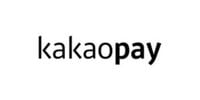On June 23, 2025, Kakao Pay's stock price surged dramatically amid growing anticipation of its entry into the Korean Won stablecoin market, signaling a potentially transformative moment for South Korea's fintech landscape. The company, a dominant player in the country's digital payment sector, has proactively filed 18 trademark applications related to stablecoins, sparking investor enthusiasm and broader industry speculation.
According to industry sources, Kakao Pay submitted these trademark applications on June 17, 2025, under names such as 'PKRW', 'KKRW', 'KRWP', 'KPKRW', 'KRWKP', and 'KRWK'. These trademarks span classifications including electronic devices, financial services, and IT development, specifically targeting cryptocurrency financial transactions, brokerage, mining, and blockchain transaction management software. The inclusion of 'KRW', the abbreviation for Korean Won, strongly suggests these trademarks are linked to Won-backed stablecoins.
Kakao Pay confirmed this interpretation, acknowledging the trademarks as a preemptive measure related to stablecoins but emphasized that no concrete business plans have been finalized yet. "We have registered trademarks proactively concerning stablecoins, but since legislation has not yet passed, we are continuously monitoring the situation without any specific plans decided," a company spokesperson said.
This strategic move comes as the South Korean government, led by President Lee Jae-myung, signals support for the adoption of Won stablecoins, fueling investor optimism. On June 17, 2025, the Korea Fintech Industry Association and the Democratic Party's Policy Committee unveiled a draft bill titled the "Innovation and Growth Law" at the National Assembly in Yeouido, Seoul. This legislation aims to institutionalize stablecoins by reducing barriers to issuance and distribution while ensuring stability under government oversight.
The proposed bill notably involves the Bank of Korea in the issuance and management of Won stablecoins. It grants the central bank authority to request data submissions from stablecoin issuers and to conduct audits through the Financial Supervisory Service. This regulatory framework reflects the Bank of Korea's cautious stance on non-bank entities issuing stablecoins, addressing previous concerns about payment system stability.
Furthermore, the bill sets a minimum capital requirement of 1 billion Won for stablecoin issuers, a significant increase from the 500 million Won proposed in the earlier "Digital Asset Framework Act" introduced by Democratic Party lawmaker Min Byung-duk. This higher threshold underscores a commitment to financial stability and risk management in the emerging digital asset market.
The market has responded enthusiastically to these developments. Kakao Pay's stock price experienced a remarkable rally, rising 162.7% over the month leading up to June 23, 2025. On the day of the trademark news, the stock jumped nearly 30%, closing at the daily upper limit. Throughout the morning trading sessions on June 23, the stock fluctuated between 86,700 Won and a new 52-week high of 94,700 Won, representing gains of up to 18.97% compared to the previous day.
Yuanta Securities researcher Cho Tae-na highlighted Kakao Pay's strong positioning in the stablecoin market, emphasizing the company's substantial prepaid fund reserves. As of the first quarter of 2025, Kakao Pay held approximately 591.9 billion Won in prepaid electronic payment balances, more than three times the amounts held by competitors Naver Pay (157.6 billion Won) and Toss (137.5 billion Won). This large collateral base is crucial in stablecoin business models, where operating profits can be generated from managing these assets.
Cho elaborated, "In the stablecoin business model, the scale of prepaid funds is important because it allows for generating additional operating income from collateral assets." She added that Kakao Pay's wallet structure, which follows a 'charge and then remit/pay' system, makes it the most natural fit to integrate stablecoins into its existing platform.
Financial authorities also appear increasingly flexible toward fintech companies issuing and distributing stablecoins, suggesting that the likelihood of Kakao Pay and others entering this market is growing. Cho projected that even if Kakao Group issues stablecoins equivalent only to its prepaid balance, the operating profit by 2030 could exceed 1 trillion Won, indicating a lucrative opportunity.
Despite the excitement, some caution remains among market watchers. The recent surge in stablecoin-related stocks, including Kakao Pay's sharp rise, has raised concerns about potential overvaluation. However, Cho reassured investors, noting that unlike the speculative frenzy seen in 2021 with metaverse and game coins, this time the market is grounded in tangible developments. "It's still too early to discuss overvaluation, as the market is only beginning to distinguish leading stocks," she said.
Kakao Pay's proactive trademark filings and the government's legislative momentum highlight a significant shift in South Korea's approach to digital assets. The company's dominant position in prepaid electronic payments and its integration within the Kakao ecosystem position it as a frontrunner in the anticipated stablecoin market.
As the Innovation and Growth Law progresses through legislative channels, industry participants and investors alike will be watching closely. The outcome could redefine payment systems in South Korea, blending traditional finance with blockchain-based innovations. For now, Kakao Pay's bold steps and soaring stock price embody the promise and excitement surrounding the dawn of Won stablecoins.


